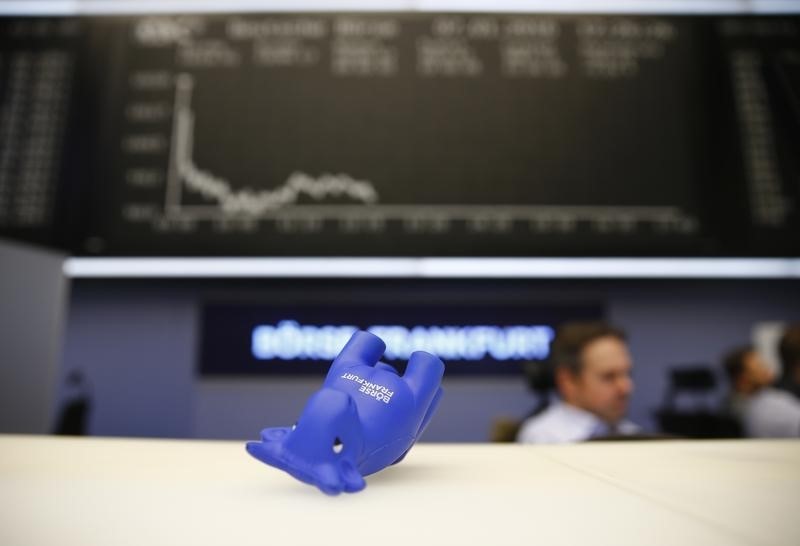This post was originally published on this site

At 02:00 ET (06:00 GMT), the DAX futures contract in Germany traded 0.2% lower, CAC 40 futures in France dropped 0.1% and the FTSE 100 futures contract in the U.K. fell 0.1%.
The People’s Bank of China announced earlier Monday that it was cutting its one-year loan prime rate by 10 basis points, to 3.45% from 3.55%, while keeping five-year rates unchanged at 4.20%.
This move has largely been seen as underwhelming, as most analysts had expected a 15 basis point cut for each rate as the country grapples with slowing economic activity.
The deepening crisis in China’s property sector along with worries about contagion risks could have a destabilizing impact on the world’s second-largest economy, which is also a major export market for many of Europe’s largest companies.
Back in Europe, German producer prices dropped 1.1% on the month in July, an annual fall of 6.0%, an indication that inflationary pressures are retreating in the eurozone’s dominant economy.
Economic difficulties in Germany are acting as a major drag on growth in the eurozone as a whole and threatening to push it into a recession, forcing a change of tune at the European Central Bank.
ECB President Christine Lagarde hinted at a pause of the central bank’s prolonged hiking cycle at its last meeting in July, and her speech at Jackson Hole on Friday will be carefully parsed for clues on the central bank’s next move in September.
That said, it will be the speech by Fed Chair Jerome Powell on the same day that will be the highlight of the symposium, as investors look for clarity on the economic outlook and the future path of interest rates from the world’s most significant central bank.
Oil prices rose Monday, rebounding after last week’s selling, helped in part by the Chinese rate cut and also by expectations of lower output from a group of top producers in August.
The crude market weakened last week, ending a 7-week winning streak, on concerns higher U.S. interest rates and China’s slowing economic recovery will hit oil demand.
However, the prospect of tighter supplies, following deep output cuts from Saudi Arabia and Russia this year, the two leading producers in the group known as OPEC+, have helped support prices.
By 02:00 ET, the U.S. crude futures traded 0.7% higher at $81.23 a barrel, while the Brent contract climbed 0.7% to $85.39.
Additionally, gold futures rose 0.1% to $1,917.20/oz, while EUR/USD traded 0.1% higher at 1.0880.

